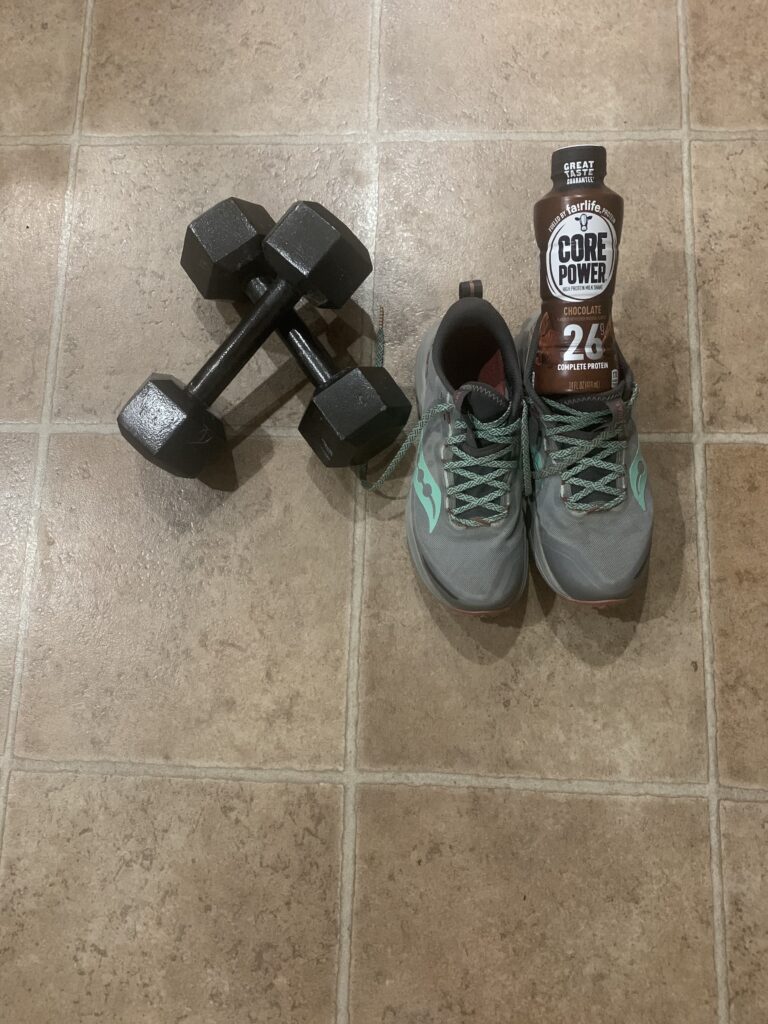Nov 8, 2023
Protein = Power After 40
After 40, recovery doesn’t come easy.
It’s harder to rebound after our regular morning or evening runs, and we might struggle with muscle soreness for longer than we used to. Waistlines and hips expand no matter how much exercise we do, and sometimes, we’re just plain exhausted.
What’s happening?
After some research and shared storytelling with friends, I learned the changes happening in our bodies were common for women over 40. Hormonal shifts, such as a decline in estrogen, take place as the body enters perimenopause, the period before menopause that can last up to 10 years. We also begin losing muscle mass and bone strength, and protein makes up a significant portion of both. This can be a significant issue because with less muscle mass, we’re more inclined to struggle with physical functions and later on, become more at risk for falls and other disabling events.
Because our bodies are changing, so are our nutrition needs. Protein is vital to our health regardless of age, but it becomes even more important as we get older. We need more protein to help with our recovery, with some studies estimating 35-40 grams after a workout. Protein can also help with weight management, and increasing protein while lowering carbohydrate and fat intake could help decrease body fat while maintaining muscle mass.
After 40, women should make sure protein is part of every meal to help maintain muscle mass and aid with recovery. A dietitian or nutrition coach can help you figure out the right amount for your daily needs.
How Core Power can help
Eating a variety of protein-rich foods, such as lean meats, eggs and beans, can help us meet our daily needs. Although protein-rich foods should be our main sources for nutrition, it can be difficult for even the most diligent of us to get our required intake each day through food alone.
Protein shakes are commonly recommended to bridge that gap, and Core Power has been a beneficial addition to my routine. Core Power has been helpful in multiple ways in meeting my daily protein goal, which is at least 100 grams a day as recommended by my nutrition coach.
The 26-gram beverage is perfect as a post-workout recovery drink, and I make sure to consume it within 30 minutes of completing my workout – the recommended amount of time for maximum muscle recovery in my routine. Combined with a healthy breakfast – or dinner if I’m doing an evening workout – I usually end up with at least 50 grams of protein for that meal. On rest days, or days when I’m doing mindfulness practices like breathwork or yoga, Core Power can still support my protein intake goal for the day.
For more strenuous workouts like that half-marathon I have coming up, the 42-gram Core Power Elite formula will be extremely beneficial for my recovery the next day and meet the additional protein needs my body will have.
While we all can expect to experience changes in our bodies as we get older, they don’t have to throw us off our game. Protein is our best friend in our 40s and beyond, and Core Power can help us reach our new recovery goals.

By Shannon Shelton Miller /Twitter: ShannonSMWrites, Instagram: shannon.shelton1
Shannon Shelton Miller is a longtime writer and journalist who enjoys writing about sports, fitness, health, beauty, and parenting. She has been running for 27 years, starting from joining her high school cross-country team. She has run a marathon, two half marathons, and countless 5K and 10K races.

